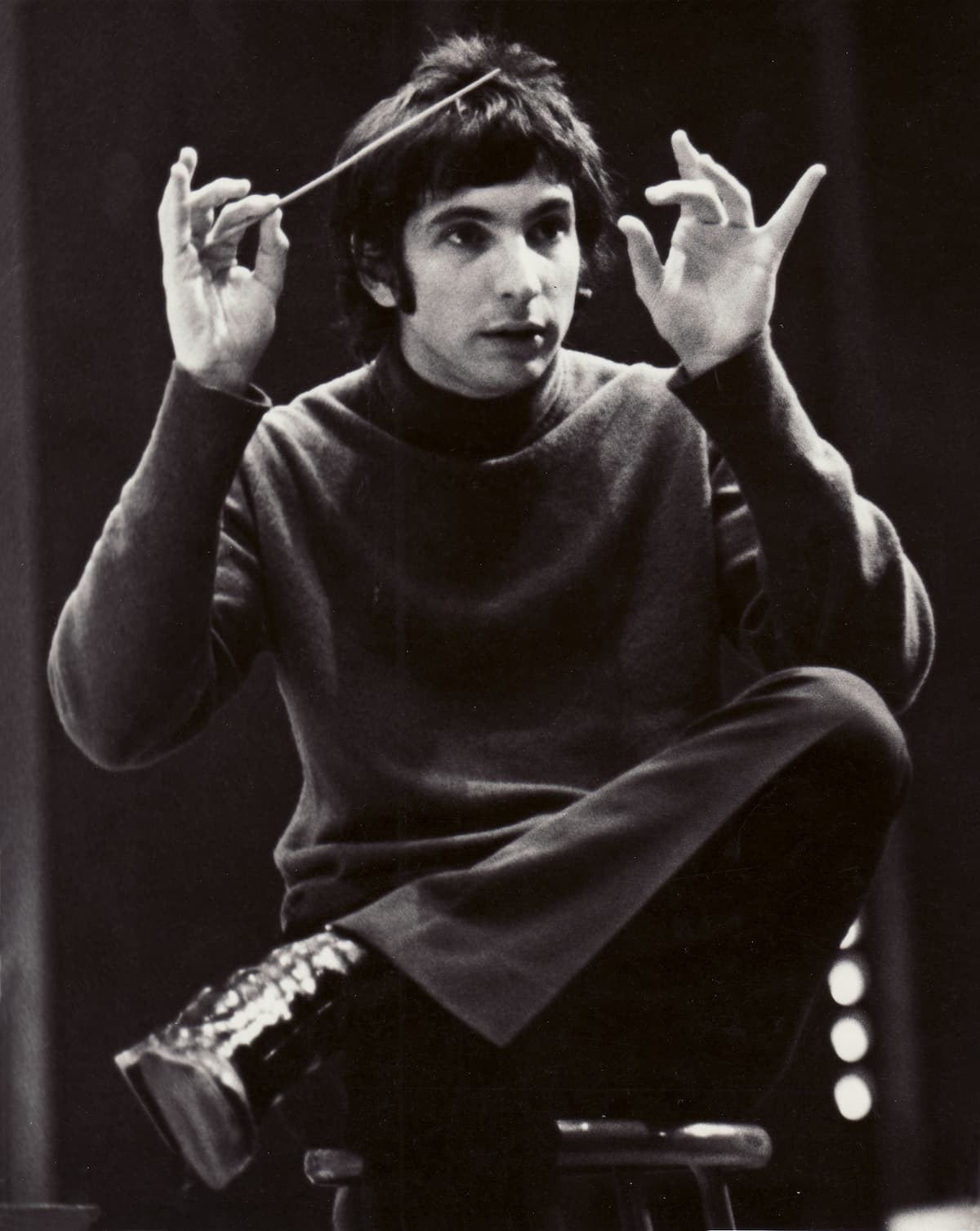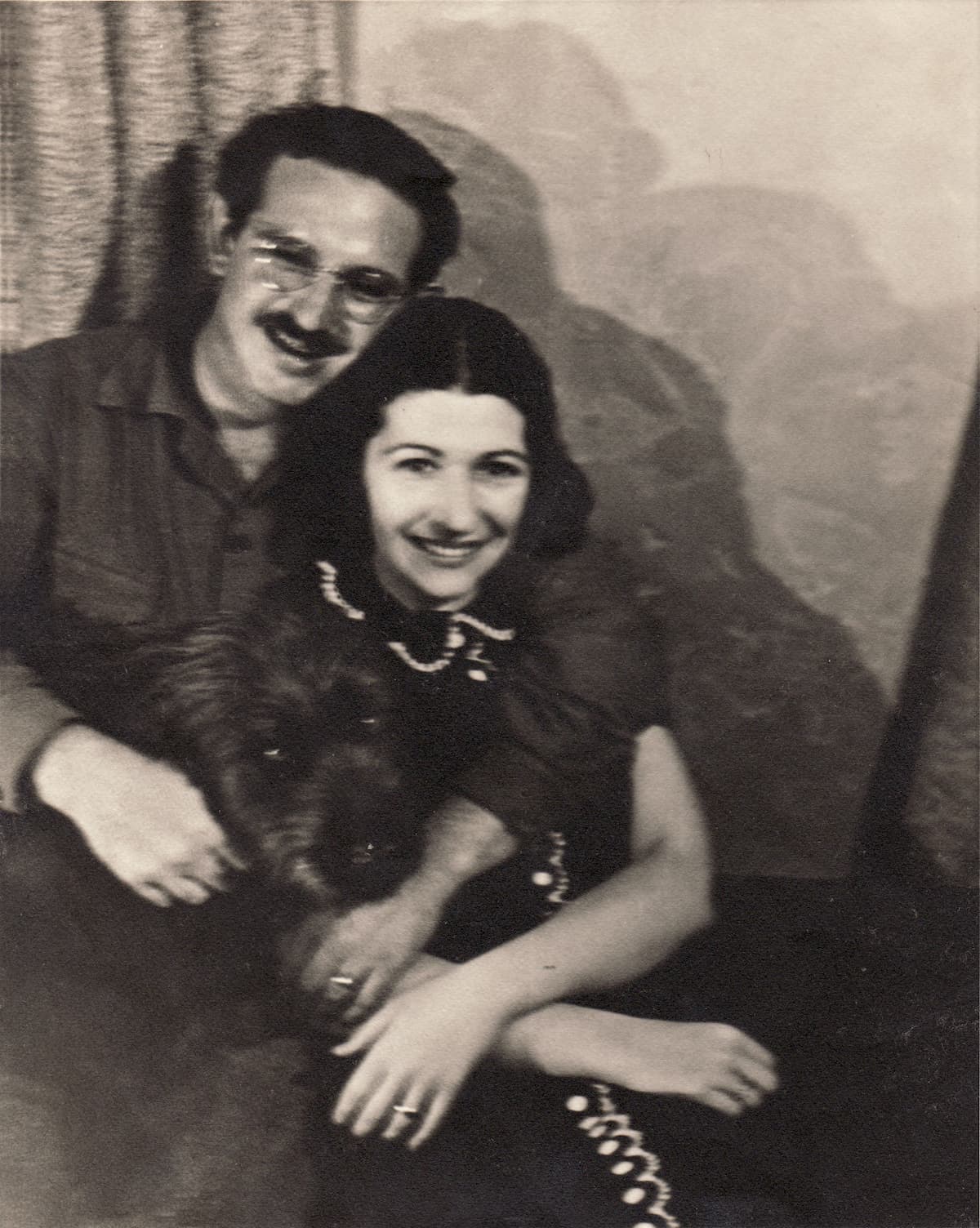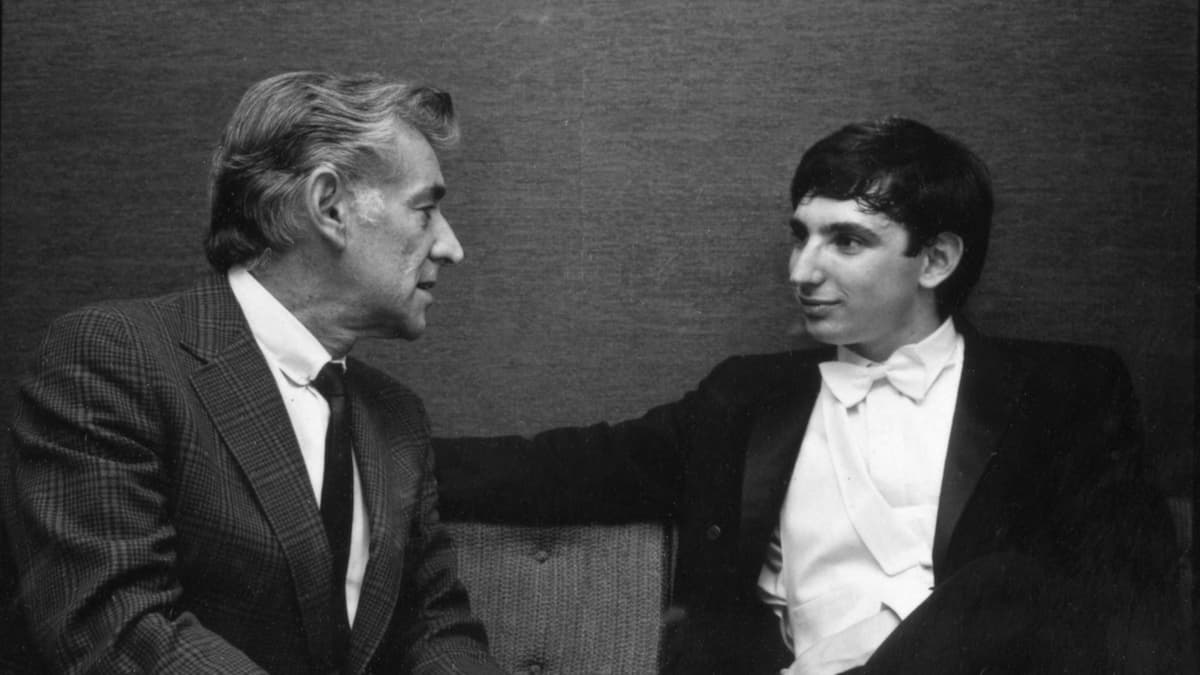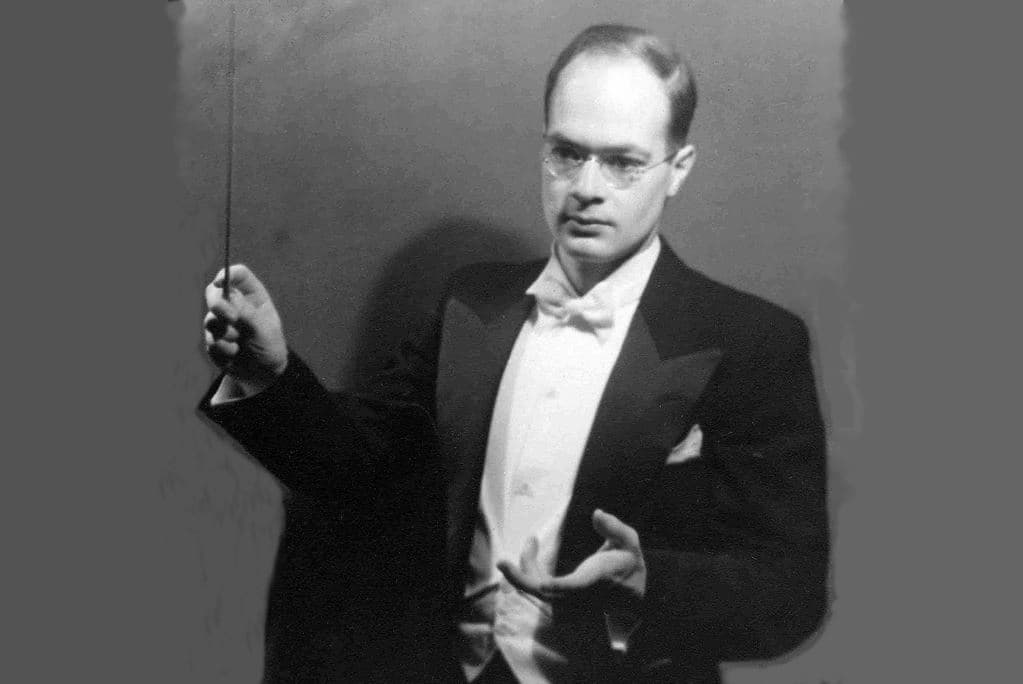Conductor, pianist, and composer Michael Tilson Thomas has won twelve Grammy Awards and amassed a discography of more than 120 recordings. During his tenure with the San Francisco Symphony, he recorded the complete symphonies of Gustav Mahler and pioneering discs of music by Charles Ives, Carl Ruggles, Steve Reich, John Cage, and others. Tilson Thomas hosted the “Keeping Score” educational television series, and his artistic collaborators range from Sarah Vaughan to Metallica.
Michael Tilson Thomas/San Francisco Symphony Perform Mahler’s Symphony No. 9 “Rondo burleske”
Ancestry

Michael Tilson Thomas
Michael Tilson Thomas was born on 21 December 1944 in Los Angeles. His father, Ted, was a Broadway stage manager and screenwriter, and his mother, Roberta, was a middle school history teacher. His paternal grandparents, Boris and Bessie Thomashefsky, were famous performers in New York City’s Yiddish theatre in the early decades of the 20th century.
His ancestral musical talent and aptitude can be traced back to his great-grandfather Pincus, an actor and playwright from a long line of cantors. His father, Theodor Herzl Thomashefsky, who was also a poet and painter, shortened the family name to Thomas, but Tilson Thomas contemplated going back to the name Thomashefsky. In fact, he currently serves as the president of the “Thomashefsky Project,” an educational undertaking that preserves the history and role of the Yiddish theatre in America.
“The Thomashefskys”
Childhood and Early Education

Ted and Roberta Thomas with their dog
Tilson Thomas was an only child growing up in Hollywood, and he was surrounded by a highly stimulating cultural atmosphere. As he explained, “I heard a lot of diverse music at home. I listened to everything; theatre music, popular music, jazz, Stravinsky, medieval music, Beethoven quartets. I guess this contributed to the pluralistic view that I have of music.”
Tilson Thomas was a musical prodigy who started piano lessons at the age of three. His parents enrolled him at the Preparatory School of the University of Southern California, where he studied with Dorothy Bishop. As he told Allan Ulrich of the San Francisco Examiner, “ I started studying with her when I was ten. She appeared to be a scattered, elderly woman. She was, in fact, a tremendously imaginative educator.”
Michal Tilson Thomas Conducts Stravinsky’s Rite of Spring
Career Path

Leonard Bernstein and Michael Tilson Thomas
Tilson Thomas was drawn to a number of subjects besides music, particularly science and Asian culture. In fact, his parents considered music a risky profession and encouraged him to pursue a career in science. Instead of enrolling at a conservatory of music, Tilson Thomas attended the University of Southern California. However, he was convinced that he “had to make music.”
He studied piano with John Crown, harpsichord with Alice Ehlers, and composition and conducting under Ingolf Dahl. By age nineteen, he was named Music Director of the Young Musicians Foundation Debut Orchestra and also worked as the pianist and conductor in master classes of Piatigorsky and Heifetz and with Stravinsky, Boulez, Stockhausen, and Copland on premieres of their compositions in Los Angeles.
Ingolf Dahl: Saxophone Concerto (1949 version) (John Harle; New World Symphony)
Meteoric Rise

Ingolf Dahl
Michael Tilson Thomas first appeared at Tanglewood and the Berkshire Music Festival in 1968, and he won the Koussevitzky Prize as a most promising young conductor one year later. He was quickly appointed Assistant Conductor and pianist of the Boston Symphony Orchestra. He would rise to take the associate and principal guest conductor appointments, a title he shared with Colin Davis until his departure in 1974.
Critics have praised Thomas’ clear and rhythmic baton technique, a flamboyant platform manner, and his conversational relationship with audiences, whom he often addresses from the podium. His programming balances traditional repertoire with unexpected selections, all shaped by “remarkable intelligence and emotional energy.” He always considered the concert hall to be a place of inquiry and thought, and although he is fighting the most aggressive form of brain cancer, he still plans to “create and collaborate to make great music.”
For more of the best in classical music, sign up for our E-Newsletter
